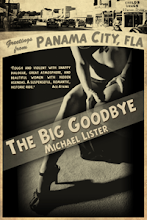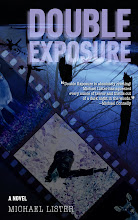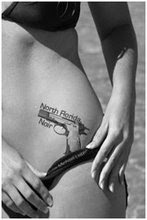
Last weekend, I pulled into a closed bank parking lot on 23rd Street where Girl Scouts were selling cookies.
As I stood there looking at the familiar boxes, wondering why Samoas weren’t among them, and asking how sells were going, I heard the following:
“What is God?”
“What?” I asked.
“What is God?” the tween Girl Scout asked me again.
It may very well be the most important question each of us asks and answers—determining all our other questions and answers—and it was interesting to hear it from a little girl selling cookies.
It’s the question I’ve been asking myself , one I’ve been answering and not, since childhood, and for a fraction of a second I wondered why she was asking, then it hit me.
I realized the reason for the question in the same moment she nodded toward my arm.
I was wearing a short sleeve shirt, and peeking out from beneath the cuff, written on my left bicep in black ink the words “is God” were visible.
“What is God?” she was asking, emphasizing the “what” because she could see the “is God.”
Most talk about God in our culture is simplistic, sexist, silly, and downright juvenile. God is reduced to that which we project our fears, biases, hopes, and dreams onto. God likes what we like, hates who we hate because we have created what we call “God” in our own image.
But God is a mystery—beyond us to such an extent we’re only left with myth and metaphor, story and poetry.
Transcendent. Ineffable. Sublime. What is God is what we should be asking all the time. Unfortunately, many among us are taught from an early age exactly what God is. We live with a rigidity and certainty, so convinced we know what God is we stop asking, keeping us from any hope of ever glimpsing what God is—which, by the way, is the best we can ever hope to do. A glimpse of ultimate reality, of the ground of being, of the great mystery, is rare and humbling and worth everything—and probably won’t happen as long as we believe we already know what God is.
If we would continually empty ourselves, be open, and ask, as my cookie salesperson did, “What is God?” we might just get a glimpse.
I take seriously the question my own arm inspired the Girl Scout to ask. If you do, too, and would like to join me in the asking, I’ve pulled a few books off my shelves to help us ask the questions (don’t trust any books or gurus that claim to have the answers).
“The God We Never Knew” by Marcus Borg is the most accessible and easy to understand of the stack of old friends I’m looking at as I write this. He’s a Jesus scholar and an active person of faith who takes modern scholarship and non-literal ideas of religion and makes them easy to understand.
Karen Armstrong is another writer who takes scholarship and interprets it for the masses. Not as personal or devotional as Borg, Armstrong takes a more historical and academic approach. Her books, “A History of God,” “The Battle for God,” and “The Case for God” are excellent—wise, learned, brilliant, thorough, profoundly thought-provoking.
“God: A Biography,” by Jack Miles approaches the God of the Hebrew Bible (or more accurately the gods) as a literary character, combining narrative, literary criticism, and modern scholarship into a fascinating look at the most famous and most written about character in human history.
“The Disappearance of God,” by Richard Friedman looks at the presence and increasing absence of God in the Bible. In many ways, a mystery story, “The Disappearance of God” is engaging and insightful, revealing, as all books about God do, far more about us than God.
Finally, and perhaps most importantly for our male-dominated, sexist culture, I highly recommend feminist theologians, Sallie McFague, Elizabeth Johnson, and Rosemary Radford Ruether, who challenge our ridiculous and limiting masculine concepts of God. “She Who Is,” “Sexism and God-Talk,” “Models of God,” and “The Body of God” are excellent aids in restoring the lost feminine face of God, and it’s difficult to imagine anything we need more. Losing the metaphor of Mother God has made us orphans capable of hating our own siblings.
I’m not just recommending each of these books, but recommending you read them all.
In most of the ways our culture judges such things, I’m not a religious person. And because of the ways our culture judges such things, that suits me just fine. But
I’ve spent my life emptying and asking the questions and will continue to. And I’m continually frustrated by how little the most religious (as our culture judges) among us know about their own religion or its sacred texts—not to mention religion
in general or theology.
The best way each of us can keep from being ignorant and arrogant, defensive and violent, is to, in humility, ask the questions, emptying ourselves of all we think we know and questioning everything—including the questions.
Over the years of my decades-long quest, I’ve come up with a few answers—answers I still continue to question, except for one. The only answer I am completely convinced of, the one that, if I am wrong about, I want to be wrong, is the one tattooed on my left bicep, the bottom part of which led the Girl Scout to ask, “What is God?”
I lifted my sleeve so she could read the answer to her question and she did.
“God is love is God,” she read, and there was nothing else for either of us to say on the subject.











